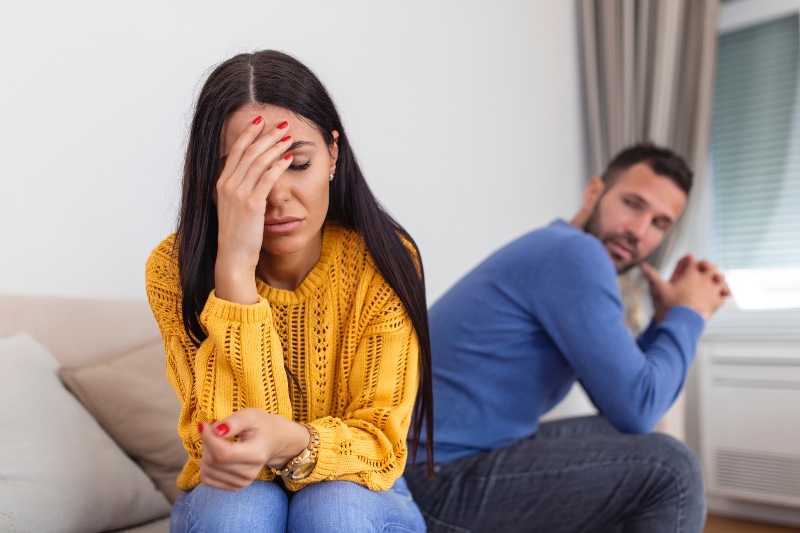
Being in a relationship requires a certain closeness. Many would argue that communication is the most important thing in a healthy relationship. Of course, that’s not necessarily easy to hear when you’re dealing with an avoidant partner.
Does it feel like pulling teeth to get your partner to open up, or even have a meaningful conversation? Maybe they never feel fully present or invested, or they might always give vague answers instead of being clear about what they want.
Needless to say, having an avoidant partner can be frustrating, and even hurtful. But, chances are, they aren’t “avoiding” you because of anything you’ve done. They probably aren’t unhappy in the relationship. Some people are more avoidant for a reason. Getting to the root cause can be the key to understanding their behaviors and their lack of communication.
So, what can you do to understand an avoidant partner?
Childhood Attachment Issues
Often, avoidant behaviors stem from childhood. Your partner may have developed an avoidant attachment style that makes it difficult for them to have relationships that go beneath the surface. People with this attachment style might not have a problem socializing and having fun with others, but they are uncomfortable letting people in.
Your partner’s avoidant attachment style might stem from caregivers or parents who didn’t provide what they needed. A child tends to develop this attachment style when they seek emotional support and it isn’t met. Eventually, they stop expecting it from people and stop looking for it, completely.
Childhood attachment issues often carry over into adulthood. Your partner might have turned their expectations off a long time ago when it comes to seeking any kind of emotional support. So, they can come across as indifferent, or even cold. In reality, they have stopped seeking support as a defense mechanism.
Past Relationship Issues
Even if your partner had a healthy childhood, they could still have a damaging past from other relationships. Emotional abuse can be extremely harmful and create a lasting negative impact on someone.
Your partner might have been criticized in a past relationship for opening up or expressing themselves. Their needs and wants may have been ignored or even criticized, so they learned to stop expressing themselves.
Insecurities
Negative relationships or even childhood issues can create feelings of insecurity in people. Your partner might struggle with their self-esteem or confidence. It can be difficult to build a person’s confidence back once it’s been shaken. But, it’s not impossible. Consider asking about your partner’s past, whether it be their relationship history or stories about their childhood.
If they’re avoidant, they might not want to dig deeper into their history. But, take baby steps to find out more. You could end up learning a lot about why they tend to struggle with communication.
What Can You Do?
In addition to trying to communicate effectively with your partner, provide reassurance. They might be avoidant because they’ve been burned in the past. Positive reinforcement is a great way to get them to see that their emotions matter, and that you care about their needs and wants. Encourage them when they start to open up. A little bit of support can go a long way.
Additionally, validate their feelings when they do speak up. Avoid criticizing, and listen deeply to what they have to say. Everyone wants to be seen, heard, and understood. Sometimes, that’s all it takes for an avoidant partner to start to change. It’s important to be patient along the way, which can be a difficult task. But, you’ll be rewarded if you give them time and space.
Finally, don’t forget to take care of yourself. You can’t pour from an empty cup, and you can’t allow the frustration of your relationship to cause you to burn out. Prioritize self-care every day, and you’ll find it easier to be more patient, understanding, and open to what your partner might be going through.
To learn more about how Couples therapy can help please contact us to schedule your free 15 minute consultation.
